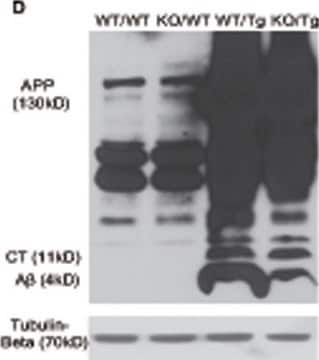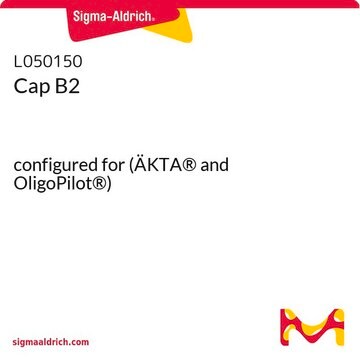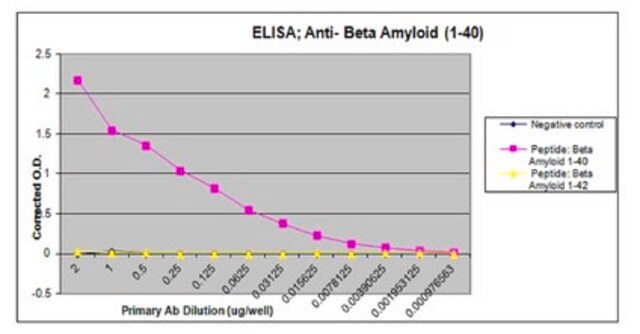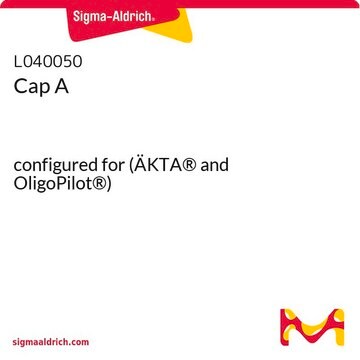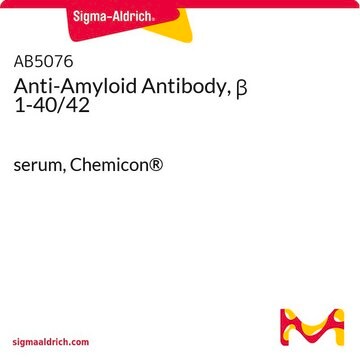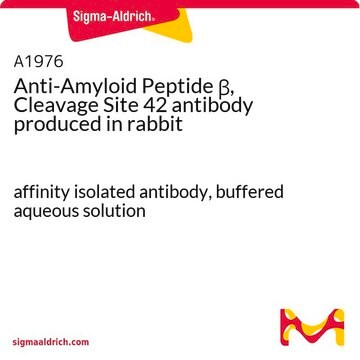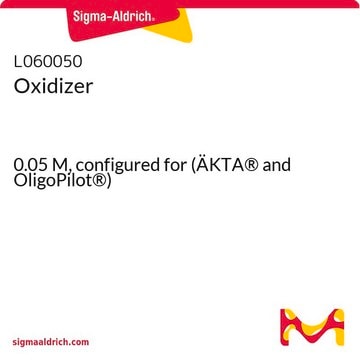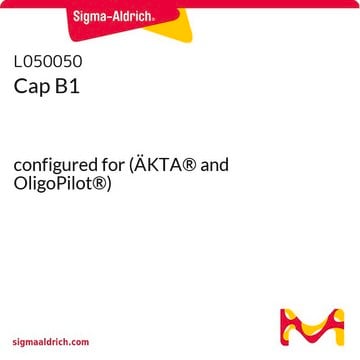MAB5208
Anti-Amyloid Antibody, β 1-16, clone AB10
clone AB10, Chemicon®, from mouse
Synonyma:
Anti-AAA, Anti-ABPP, Anti-AD1, Anti-APPI, Anti-CTFgamma, Anti-CVAP, Anti-PN-II, Anti-PN2, Anti-alpha-sAPP, Anti-preA4
About This Item
Doporučené produkty
biological source
mouse
Quality Level
antibody form
purified immunoglobulin
antibody product type
primary antibodies
clone
AB10, monoclonal
species reactivity
human, monkey, bovine
manufacturer/tradename
Chemicon®
technique(s)
ELISA: suitable
immunocytochemistry: suitable
immunohistochemistry: suitable
immunoprecipitation (IP): suitable
western blot: suitable
isotype
IgG1
NCBI accession no.
UniProt accession no.
shipped in
wet ice
target post-translational modification
unmodified
Gene Information
human ... APP(351)
Související kategorie
Specificity
Immunogen
Application
Neuroscience
Neurodegenerative Diseases
Immunohistochemistry: 5-10 µg/mL
Immunocytochemistry: 5-10 µg/mL
ELISA: 0.2-1.0 µg/mL
Immunoprecipitation
Optimal working dilutions must be determined by end user.
Physical form
Storage and Stability
Other Notes
Legal Information
Disclaimer
Ještě jste nenalezli správný produkt?
Vyzkoušejte náš produkt Nástroj pro výběr produktů.
Storage Class
12 - Non Combustible Liquids
wgk_germany
WGK 2
flash_point_f
Not applicable
flash_point_c
Not applicable
Osvědčení o analýze (COA)
Vyhledejte osvědčení Osvědčení o analýze (COA) zadáním čísla šarže/dávky těchto produktů. Čísla šarže a dávky lze nalézt na štítku produktu za slovy „Lot“ nebo „Batch“.
Již tento produkt vlastníte?
Dokumenty související s produkty, které jste v minulosti zakoupili, byly za účelem usnadnění shromážděny ve vaší Knihovně dokumentů.
Náš tým vědeckých pracovníků má zkušenosti ve všech oblastech výzkumu, včetně přírodních věd, materiálových věd, chemické syntézy, chromatografie, analytiky a mnoha dalších..
Obraťte se na technický servis.